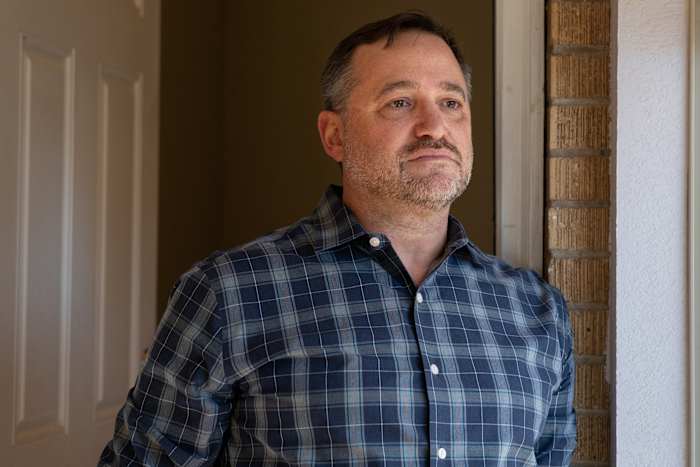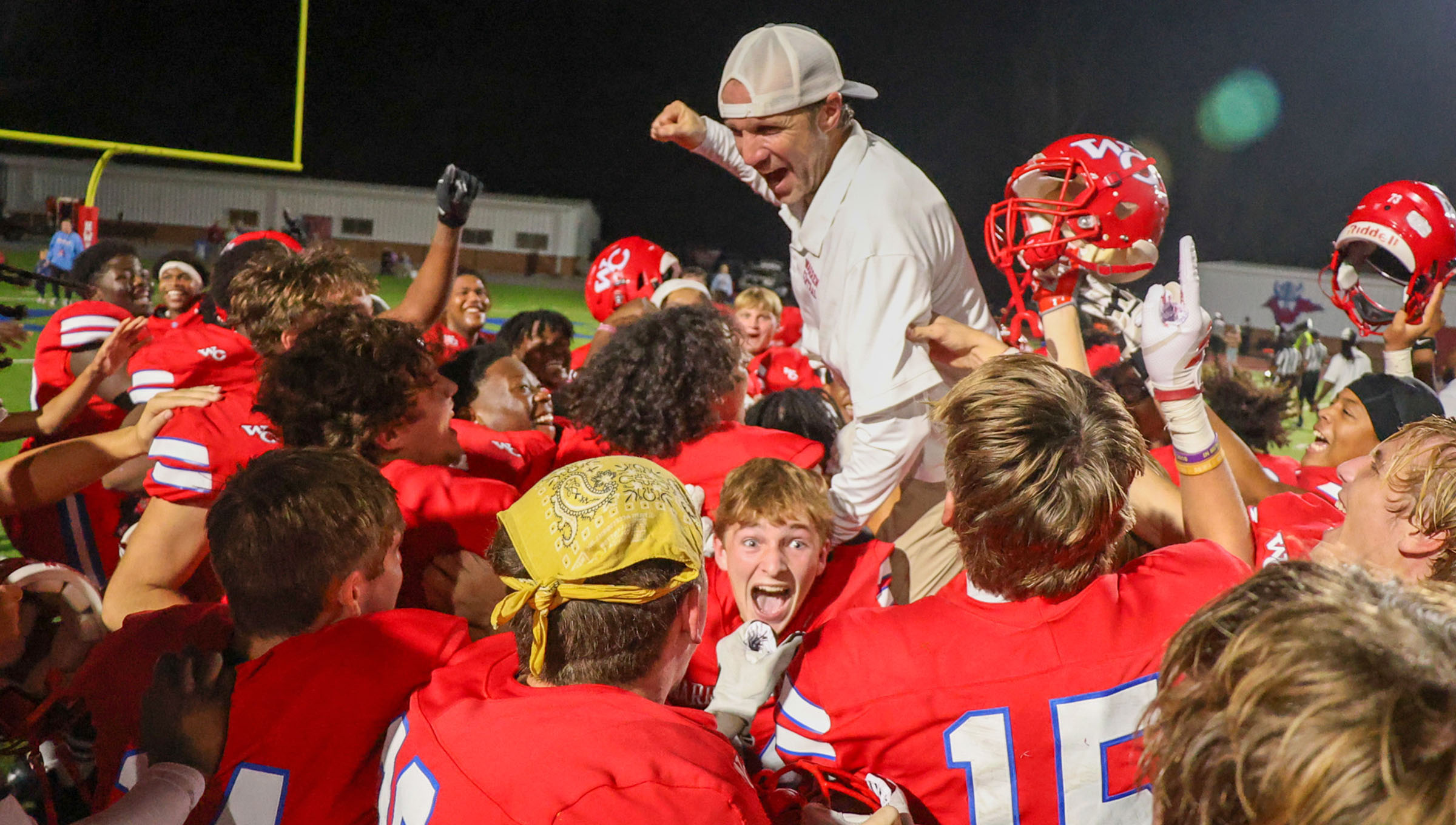In the aftermath of the Oct. 7 attack on Israel by Hamas two years ago, high school teacher Josh Hirsch posted comments on social media in support of Israel. “It was unrealistic for Hamas to expect a ceasefire,” he wrote, “as long as they were holding hostages.”
Soon afterward, a former student called for his firing. A note taped outside the door of his Adams County, Colorado, classroom contained his wife’s name and their home address. A sticker that appeared on his chair read: “Israel is committing genocide in Gaza.” The reaction startled Hirsch, the only Jewish teacher in his school building. For the first time in his 14-year career, he considered quitting.
He stayed and joined an educators’ advocacy network created by the Anti-Defamation League, a way he saw to make schools more inclusive of diverse viewpoints. “I’ve been a teacher and tried to keep my focus on being the best teacher I could,” he said.
### Rising Tensions in U.S. Schools
Tensions over the Israel-Hamas war have spilled into schools around the U.S., with advocates reporting a rise in antisemitic harassment since the 2023 surprise attack on Israel. While some argue school leaders have failed to take the threat seriously, others warn criticism of Israel and the military campaign in Gaza are too often interpreted as hate speech.
The Trump administration has not punished school systems as aggressively as it has colleges accused of tolerating antisemitism, but schools are still facing pressure to respond more aggressively. Several states have pressed for new vigilance, including legislation that critics say would stifle free speech.
### Both Conservative and Liberal States Apply More Scrutiny
Lawmakers in Texas, Arkansas, Oklahoma, and Tennessee have passed measures to increase school accountability for complaints of antisemitism. Meanwhile, a law signed by California Gov. Gavin Newsom, a Democrat, will provide training to identify and prevent antisemitism in schools.
In Arizona, the Democratic governor vetoed a bill addressing reports of antisemitism in schools, calling it an attack on educators.
Many of these measures, including one signed by Oklahoma’s Republican governor, call for adoption of a definition of antisemitism that casts certain criticism of Israel as hate speech.
“These bills make it clear that Oklahoma stands with our Jewish communities and will not tolerate hatred disguised as political discourse,” said Kristen Thompson, a Republican state senator in Oklahoma who authored the legislation.
Dozens of states have adopted the definition promoted by the International Holocaust Remembrance Alliance (IHRA), which is also recognized by the U.S. State Department. It lists 11 examples of antisemitic conduct, such as applying “double standards” to Israel or comparing the country’s policies to Nazism.
While supporters of this definition say it is necessary to combat evolving forms of Jewish hate, civil liberties groups warn it suppresses pro-Palestinian speech.
### Trump Administration Approach Contrasts with Actions on Colleges
The Trump administration leveraged antisemitism investigations to reshape higher education, suspending billions of dollars in federal funding to Harvard, Columbia, and other universities over allegations they tolerated hate speech, especially during protests related to the Israel-Hamas war.
However, the White House has not been as involved at the K-12 level. At congressional hearings, House Republicans have criticized some large school systems over their handling of antisemitism, but the administration has largely left it to the Education Department’s Office for Civil Rights to address complaints.
### Investigations and Lawsuits at California Schools
In one case under investigation, a complaint described students at the Berkeley Unified School District asking Jewish classmates what “their number is,” referring to the numbers tattooed on Jews during the Holocaust. The complaint also alleged that teachers made antisemitic comments and led walkouts praising Hamas. The district did not respond to requests for comment.
In another California case, the family of a 14-year-old girl filed a federal lawsuit last year alleging she had to leave University Preparatory Academy, a charter school in San Jose, in 2023 because of antisemitic bullying. After the Hamas attack, she said students called her names, including “terrorist.” The California Department of Education and the school declined to comment on pending litigation.
### Alarming Statistics from the ADL
Nationwide, the ADL recorded 860 antisemitic incidents in non-Jewish schools last year — ranging from name-calling and swastikas etched on lockers to antisemitic materials being taught in classrooms. The number was down from over 1,100 recorded in 2023, but still well above figures in prior years.
### A Massachusetts Teachers Union Pushes Back
A Massachusetts state commission formed last year to combat antisemitism found it was a “pervasive and escalating problem” in schools. At one meeting, commission co-chair and Democratic state Rep. Simon Cataldo accused the Massachusetts Teachers Association of sharing antisemitic resources with teachers, including a kindergarten workbook that described Zionists as “bullies” and an image of a Star of David made of dollar bills.
The union said those images were singled out among hundreds of other materials concerning Palestinians and that links to those materials were removed. It also highlighted efforts to confront both antisemitism and Islamophobia in schools and called the commission’s accusations “offensive political theater.”
“Those who manipulate antisemitism to achieve political objectives such as undermining labor unions and public educators are following the lead of the Trump administration,” the union said in a statement.
Margaret Litvin, an associate professor at Boston University and co-founder of the Boston-area Concerned Jewish Faculty and Staff group, said the commission was “deliberately conflating criticism of Israel with prejudice against Jews and bias against Jews.”
She warned that such an approach would justify “heavy-handed” state interference in school district affairs.
### Controversy Reaches the National Education Association
Tensions extended to the National Education Association (NEA), the nation’s largest teachers union. This summer, the NEA considered a proposal to drop Anti-Defamation League classroom materials used to teach about the Holocaust and bias.
Supporters of the proposal argued that the ADL exerted an outsized influence on school curricula and policy, driven by an underlying pro-Israel viewpoint.
Delegates at the union’s representative assembly narrowly approved the proposal, but it was later overruled by the NEA board of directors. Union President Becky Pringle stated the proposal “would not further NEA’s commitment to academic freedom, our membership, or our goals.”
### New Efforts to Combat Antisemitism in Schools
Following these events, the ADL invited K-12 educators to join a new network called BEACON: Building Educator Allies for Change, Openness, and Networks. The initiative aims to help educators learn from each other how to address and combat antisemitism and other forms of hate.
Josh Hirsch, the Colorado teacher, was among hundreds who expressed interest.
Some of the backlash he faced stemmed from his online commentary about local activist organizations. After donating money to Black Lives Matter groups and supporting them with a sign in his yard, he expressed feelings of betrayal upon seeing those groups express support for Palestinians and not Israel.
He said he was surprised by the reaction to his posts in his predominantly Hispanic school community.
A former debate coach, Hirsch hopes to help students share their opinions in constructive ways through his work with the ADL network.
“If we’re giving them the opportunity to hate and we’re giving them the opportunity to make enemies of someone, it really is counterproductive to what we’re trying to do as a society,” he said.
https://www.clickorlando.com/news/politics/2025/11/09/states-are-pushing-for-more-scrutiny-of-antisemitism-in-schools/

